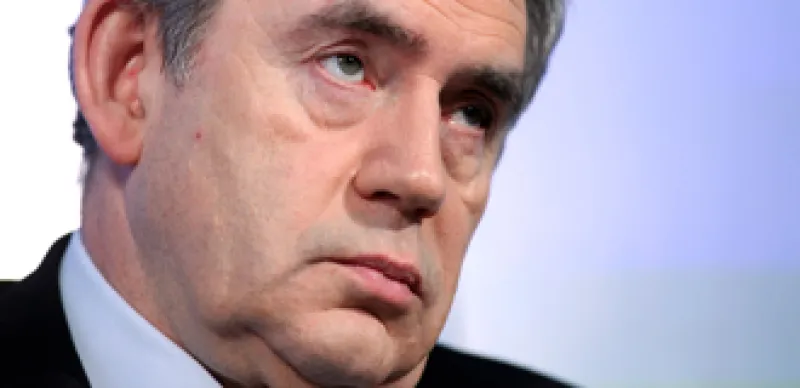
Gordon Brown, U.K.'s prime minister, pauses as he listens to speakers at the Global Investment conference in London, U.K., on Monday, Feb. 22, 2010. Staff working directly for Brown contacted a telephone helpline that offers advice for people who say they have been bullied in the workplace, adding to reports that he mistreated staff. Photographer: Chris Ratcliffe/Bloomberg *** Local Caption *** Gordon Brown
Chris Ratcliffe/Bloomberg

